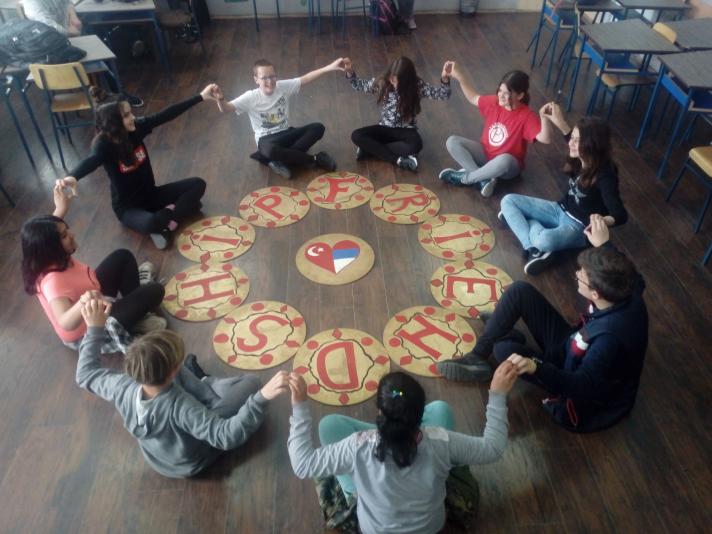Topic(s) addressed
The creative drama was used as a tool to deal with the burning issue of the fight for a more sustainable, more tolerant and more inclusive world.
Target groups
- 20 teachers of the partner primary schools
- 400 students aged 7 to 14
Methodologies
- Drama as a pedagogical tool allows for a multidisciplinary approach incorporating syllabi of different subjects e.g. English, maths, science and other.
- A creative drama work resulted in raising the level of intercultural and environmental awareness, acceptance and tolerance.
- All students were actively involved in the playwriting and showed extraordinary motivation during the lessons.
- The eTwinning project and the usage of various web 2.0 tools contributed to valuable outcomes and learners' autonomy.
Environments
- During the Covid 19 pandemic, the creative drama activities were shifted to Google classrooms using creative tools such as Pixton to create digital stages, props and lines.
- The play “Nature will say thank you” was partially created on the banks of the town river Jasenica unfortunately very polluted. The idea for the play was born there during a school trip.
- The schools themselves became ‘’stages” where educational escape rooms, treasure hunts, Chess boards, and other activities were carried out.
- Association of drama pedagogues, local authorities and national and international institutions supported the schools in this learning quest and in the dissemination of the project results.
Teachers
- Trained by experts in the pedagogical usage of creative drama in education, the teachers from the partner schools started thinking out of the box.
- Teaching and learning became an engaging process in which the students were shown the path of searching, asking, finding out, feeling, creating, understanding one another and learning by doing.
- The teachers also learned about themselves and about their students along this way. They became real partners in the learning process.
Impact
- Through the creative process, the students could identify with the characters they played: a bullied person, an ancient mathematician, a chemical element or a fish dying in a polluted river.
- In the play “The Tokens of Friendship” the main role was played by a Romani girl who magnificently presented the feelings of many underprivileged groups of children.
- The main benefit was that the students themselves wrote all scripts expressing their true thoughts and feelings about the respective topics.
- The method used enabled the students to share their skills and outcomes with a wider audience by performing the plays locally and internationally.
- Reference
- 2018-1-RS01-KA201-000427
- Project locations
- Serbia
- Project category
- Primary education
- Project year
- 2022
Stakeholders
Coordinators
Kapatan Adnan Ortaokulu
- Address
- Türkiye
Zabbar Primary School
- Address
- Malta
Demenika Primary School
- Address
- Greece
Bazaart
- Address
- Serbia

